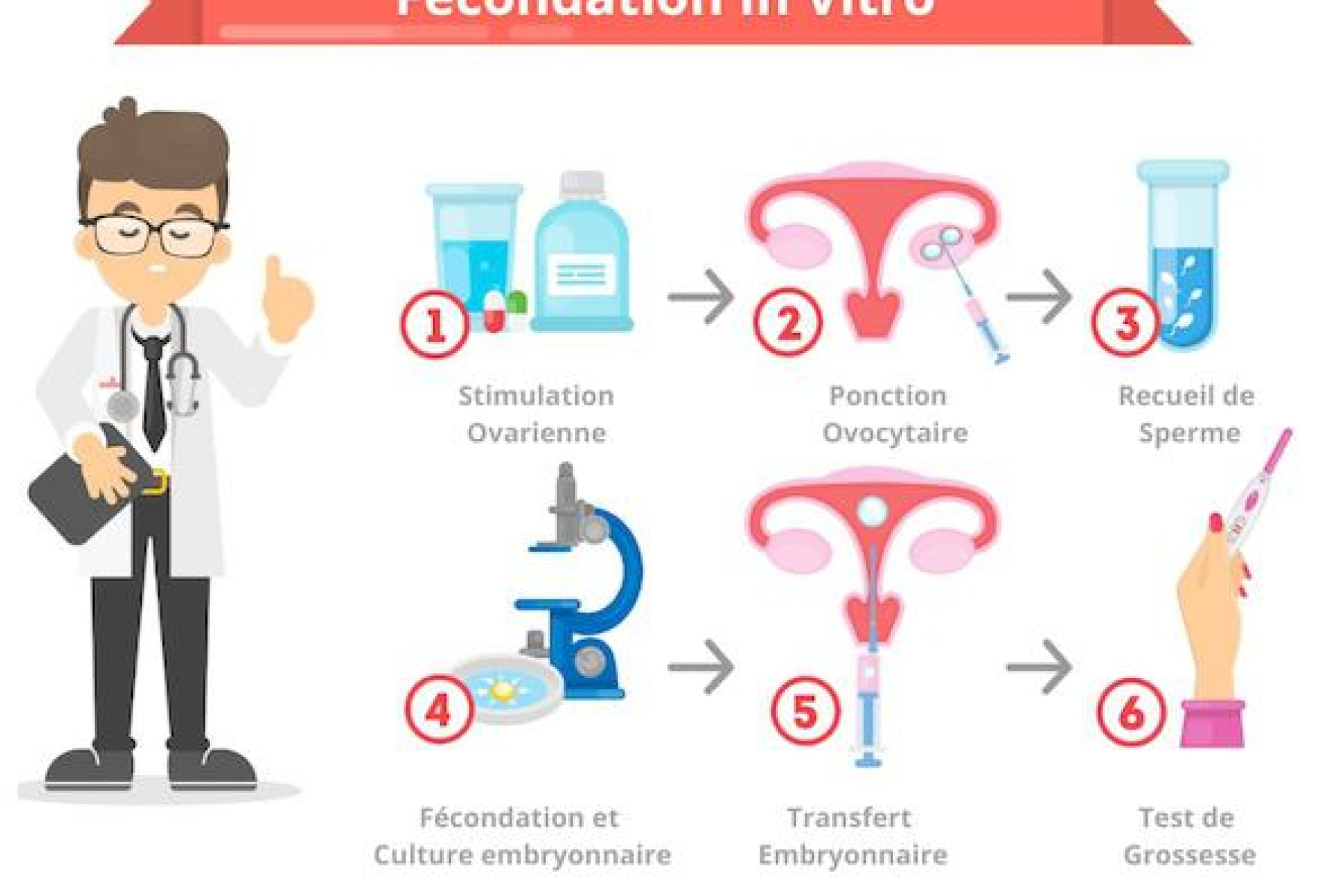
You have consulted your gynaecologist and have been offered a course of medically assisted procreation by in vitro fertilisation (IVF) to optimise your chances of becoming pregnant.
The aim of this fertility procedure is to obtain one or more embryos of optimal quality that can be transferred to the uterus to enable pregnancy to occur.
In vitro fertilisation (IVF) involves obtaining several oocytes in a single cycle (after 10 to 15 days of treatment) in order to maximise the chances of obtaining at least 1 transferable embryo.
The treatment involves ovarian stimulation using hormones in the form of injections.
The daily dose prescribed by your doctor is adapted to your particular case and determined by prior assessment criteria such as the count of antral follicles on ultrasound at the start of the menstrual cycle and AMH (anti-Müllerian hormone) levels.
Response to ovarian stimulation treatment is assessed by vaginal pelvic ultrasound, combined with hormone assays. During the treatment period, this monitoring takes place approximately every 48 hours until an optimum number of mature follicles has reached a size and hormone level indicating the moment of optimal maturity.
In other words, the most favorable moment for a puncture to fertilise the oocytes collected.
After consulting your doctor, you will embark on a fertility program that includes several stages:
During ovarian stimulation and in addition to the treatments explained above, adjuvant medication may be offered:
For example, prior to ovarian stimulation, a "block": using an oestroprogestogenic pill, estradiol, progesterone (tablets) or GnRH agonists (intra-muscular, nasal or subcutaneous).
During ovarian stimulation to prevent premature ovulation, your doctor may prescribe antagonists such as GnRH (Cetrotide®, Orgalutran® or Fyremadel Gé®).
Once the optimum moment of maturity has been decided, you will need to undergo an injection of HCG hormone (OVITRELLE®) or Decapeptyl®, which will trigger the final stage of oocyte maturation.
This injection must be carried out at an extremely precise date and time to allow the subsequent stages to run smoothly.
On the one hand, following the treatment, your doctor performs an oocyte puncture, i.e. the removal of mature eggs. This requires surgery. This operation is carried out vaginally under ultrasound guidance (under local or general anaesthetic). Using the ultrasound probe, the doctor will prick each mature follicle on each ovary and send it to the laboratory.
On the other hand, your partner will have to collect sperm on a date set by your doctor.
This is an essential step, as it provides the fertility laboratory with the gametes essential for procreation: spermatozoa and oocytes (eggs).
After the puncture and collection of the sperm, the laboratory carries out the in vitro fertilisation of the oocytes (different procedures exist, which we will describe in detail in another article - link to other articles). In vitro fertilisation can take between 2 and 6 days.
Once this time has elapsed, the doctor transfers the embryo into the uterus. The procedure is painless and is carried out in consultation. It involves inserting a catheter (a flexible plastic tube approximately 1 mm in diameter) into the uterine cavity via the cervix, after inserting a speculum (as for a standard gynaecological examination).
If you had several mature oocytes at the time of the puncture, you will be able to benefit from several embryo transfers in the event of a negative result at the final stage.
After the embryo transfer, you will be told when to take the pregnancy test: 14 days after in vitro fertilisation, i.e. 14 days after the puncture. This compulsory blood test will determine whether the transferred embryo has developed favourably and implanted in your endometrium.
The blood test assesses the level of beta HCG, a specific hormone produced by the embryo and released into the mother's bloodstream.
Adjuvant treatments are necessary for the pregnancy to develop properly.
WiStim, the fertility specialist, can help you monitor your treatment on a daily basis with the Wistim IVF application.
Written by:
Dr. Soizic Le Parco,
Fertility and medically assisted procreation centre
Institut Mutualiste Montsouris